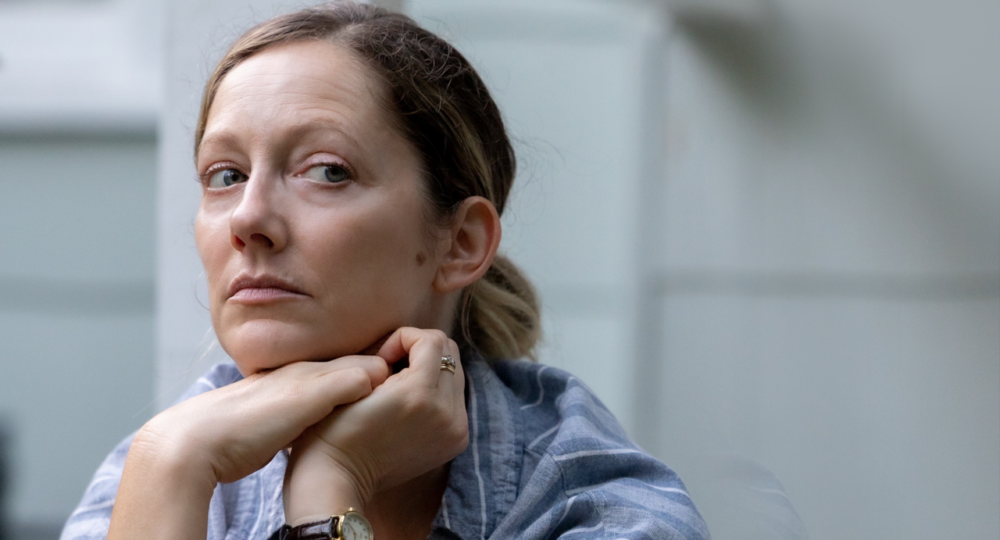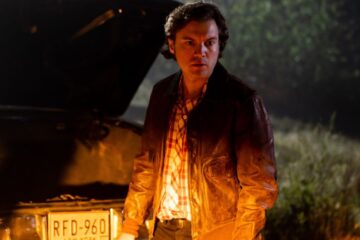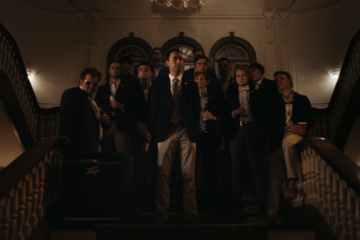
Michael Shannon’s first go at directing, “Eric LaRue,” is a deep dive into how a tragic event ripples through a family. In this film adaptation of Brett Neveu’s 2002 play, Judy Greer and Alexander Skarsgård play the parents of a teenager who, in a chilling turn of events only fully revealed at the film’s end, has killed three classmates in a school shooting. Now, they’re left to pick up the pieces in their tight-knit community.
The film poses a tough question: when something this horrible happens, who really owns the grief or the blame?
Greer’s character, Janice, is haunted by doubts about her role in her son’s horrifying actions. Meanwhile, her husband seeks comfort in religion, getting involved with a new church and forming a close bond with a fellow churchgoer, played by an unsettlingly intense Alison Pill. Their suburban life, with its pressures to conform, is depicted with sharp detail—Janice works at a generic big-box store, and her husband often finds himself drinking alone at a local bar.
Throughout the movie, Janice is consumed by confusion and guilt, wrestling with what she is supposed to feel as the mother of someone who has done something unthinkable. There’s a poignant scene where her son, Eric, pleads with her to tell others he’s sorry, hoping for some kind of redemption, but Janice finds herself numb, unable to process her own emotions.
The film cleverly uses its suburban setting to highlight the ordinariness that surrounds extraordinary tragedy—the mundanity of Janice’s job, her husband’s solo bar visits, and the everyday interactions that now feel charged with a new, heavy significance. It’s a stark look at how people cope with grief and blame, asking if anyone can truly claim ownership of these feelings in the wake of such a disaster.
“Eric LaRue” is a gripping exploration of these themes, filled with moments that may leave you feeling uncomfortable but are undoubtedly powerful. It’s a film that doesn’t shy away from asking hard questions about responsibility, guilt, and the human capacity to heal after a tragedy. Watching it might not be easy, but it offers a compelling look at the complexities of human emotion and the ways we try to make sense of the senseless.
Lucy Hale and Emile Hirsch’s Inside Man is an Indie Hit
August 22, 2023Tribeca Review: The Line
June 28, 2023Tribeca Review: First Time Female Director
June 21, 2023
Comments are closed.
A Professional Diver’s Watch and So Much More
June 29, 2014Taylor Swift to design Chinese Clothing Line
August 2, 2015Hazel-E on BET’S Love & Hip Hop And Career
May 7, 2016





